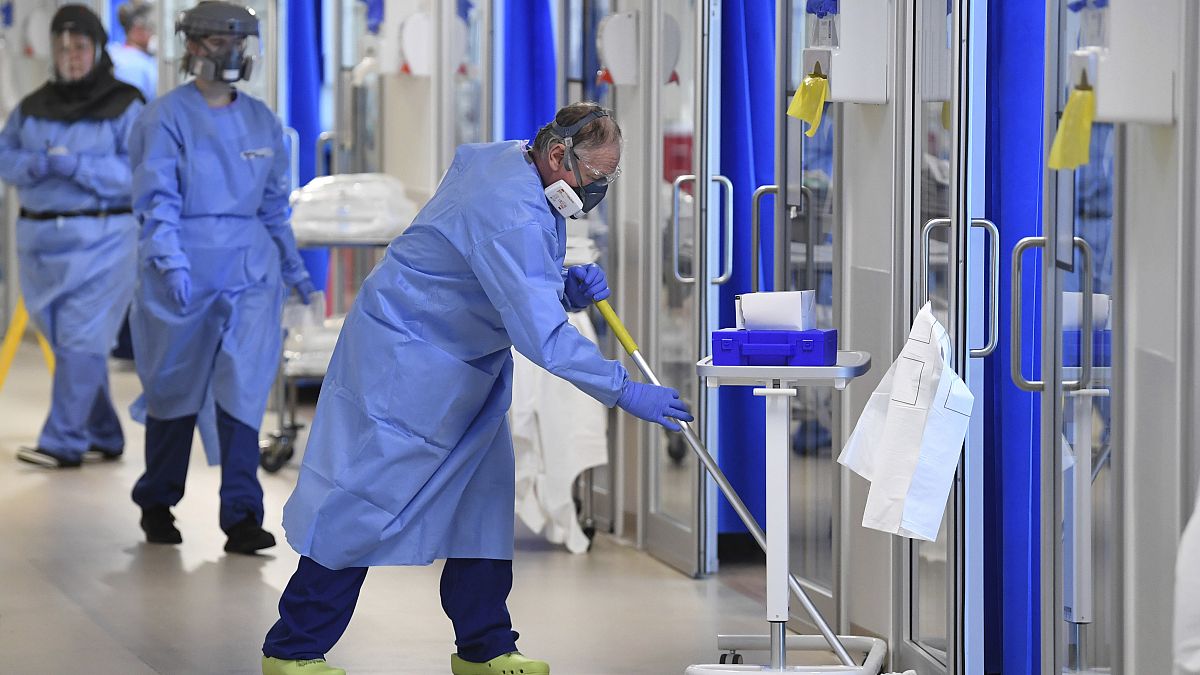UK's CBI warns staff shortages could last for two years, as businesses call for more visas to be given to low-skilled workers.
Staff shortages in the UK could last for two years as businesses demand that more visas are granted to low-skilled workers from overseas, the Confederation of British Industry (CBI) has warned.
Since Brexit, the UK has said it only wants to admit highly skilled workers from overseas and encouraged employers to fill low-skilled vacancies with people who already live here.
But now that many are returning to their offices, the work of cleaners is becoming much more important, and it is one of a long list of sectors where staff are increasingly difficult to find in Britain.
When the UK left the EU, it also closed its doors to low-skilled migrants, and now that life is returning back to normal, their absence is being felt, especially for Pioneer Facilities chief executive Mary-Jane Pettit, who told Euronews that a lot of their operatives had gone home.
"I’d say probably 70% were either Spanish, south American, Bulgarian, Romanian; a lot of them have gone home. We’ve lost I’d say at least 25% of our workforce," she revealed.
Recruiting new staff in the country has become trickier for Pettit, as a lot of people are not interested in a 9-to-5 job.
"So it’s taken a lot of the people out there that wanted to be here and who worked exceptionally hard," she added.
Other sectors have also been affected, with service stations forced to close because of the shortage of HGV drivers, supermarkets unable to keep their shelves fully stocked, KFC fast-foods closing because they had no chicken, and McDonald’s even running out of milkshakes.
"If you want to solve immediate labour shortages and skills shortages in our economy, you’re going to need to use the immigration system that we set up for exactly that job. We said we would now have an immigration system that only brought in the skills we need. It was built for exactly this moment," declared CBI director-general Tony Danker in a speech.
The British government relented and promised temporary visas for truck drivers and poultry processors last week, but the CBI has identified a long list of other skills that Britain needs, such as forklift drivers and chefs.
Leaders of the cleaning industry have also called out the British government for calling their staff "low-skilled".
"Anyone who thinks it’s an industry exempt of skill isn’t looking. We would like the government to seriously recognise the growing scale of the issue and work with us to look at all available solutions," chairman of the British Cleaning Council Jim Melvin told Euronews.
The British government is adamant that its new immigration regime is not to blame, but business leaders do not believe short-term visas will attract the people they need. As summer fades, they fear it could be too late to stop a winter of discontent.
